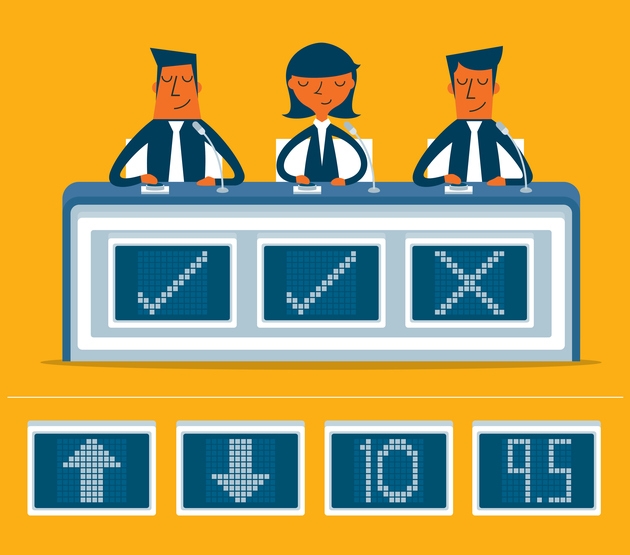You have /5 articles left.
Sign up for a free account or log in.

Istock/Sorbetto
Have you ever compared job interviews to sports? The typical job interview is just two people: you and interviewer. It’s like a game of tennis. The initial few shots are easy questions, and then things get more difficult. The interviewer keeps hitting the ball back to you in the form of more difficult questions, and you must return each shot effectively. As more shots come over the net, the questions may get more difficult or touch on areas where you have weaknesses. At the end of this interview game, as in a game of tennis, you are normally pretty tired.
If a typical interview is like a game of tennis, how would you describe a panel interview? A panel interview is a very different sport. You are typically led into a conference room with multiple people waiting to talk with you. That changes the scenario and makes a typical game of interview tennis into a game of interview dodgeball.
Multiple interviewers are tossing questions to you, and you must answer all of them well. You may not know which person will throw the question ball next, and your goal is to avoid being hit by questions you’re not prepared to answer. At the end of this game, you’re not tired -- you are exhausted.
In some panel interviews, a lead person asks all the questions and the other panelists add something only occasionally. Other panels split the questions among the panelists, and you are responding to questions from each person. You never quite know what will occur in a panel interview game.
Why would an organization consider using panel interviews to select their new employees? Because such interviews can provide numerous benefits. Panels are the easiest way to get multiple stakeholders together and make each person a part of the interview process. If you are a supervisory candidate, a panel of your future staff members may be convened so they can get a sense of you as a potential supervisor. Other panel interviews might be led by your future boss with a team of selected peers in the room. In that case, the organization may be looking to assess how well you think on your feet, your team interaction skills and your ability to manage stress effectively.
No matter what goals the organization has in mind for your interview, your keys to success are the same. Your task is to keep that interview ball continually in motion. Each step you take in the game should help sell you as the best candidate. Sufficient preparation, organization, eye contact and follow-up will help you win the game and land that job.
Winning Tips
The first thing you need to do when you are offered the opportunity to interview is get specific information. Be sure to ask the name of your interviewer. If the person who contacted you has not volunteered early in their description of the interview that it will be a panel, this question should remind them to let you know that multiple interviewers will be participating.
Get the full name and title of each person who will be on the panel, then use that information to do some research on each panelist and their areas of expertise. It’s not necessary to do a deep dive on each person to the point of knowing their spaniel’s name is Rex. Just get some basic information, such as their functional role, recent publications and a general idea of their job history.
Next review the types of questions that the panelists might ask you during the interview. Ensure your STAR stories (situation, task, actions, result) are prepared for responding to such questions. Include one or two questions from each panelist’s area of expertise. If research scientists are on the panel, be prepared to answer potential scientific and lab-related questions that would apply to the position and your field of study.
Bring a pad (your preference of electronic or paper) with you to the interview. Also bring enough materials to your interview. That means you should make sure you have enough résumés and networking cards for each panelist. Take a few more sets of the materials than you plan to give out in case someone else joins the group or wants another set for an associate.
Occasionally an organization will not give you any notice that the interview is a panel. In this case, take a deep breath once you find out. Shake hands and collect business cards up front. Place the cards in order in front of you -- like a classroom seating chart -- to ensure you can connect each person with their name. This will ensure you don’t confuse Emily in accounting with Carolyn in marketing.
Be sure to make eye contact with everyone on the panel as you answer questions. The easiest way to do that is to move your gaze from person to person as if you are telling a story to a group of friends. You might find it helpful to give more eye contact to the person who asked the questions while you are responding. Do not ignore anyone on the panel. Someone whose seat is awkwardly placed or may be just taking notes could cast the deciding vote about whether you get hired or not.
Have on hand a general list of questions to ask the interviews. Update that list with a focus on the expertise of each person. Consider each panelist’s role in the organization and then craft questions that you would direct to someone working in that specialty. For example, you may be interviewing at a start-up with the company’s founder, operations officer and technology director. Ensure that you have questions that focus on big-picture issues about the organization’s mission, vision or future direction for the founder. Have some questions about technology, software or device usage for the technology director. Ask the operations officer questions about future staffing plans, proposed operational procedure or the company’s compliance challenges.
Follow-through makes the difference between just returning that interview ball and returning it effectively. As you wrap up the interview, be sure to thank each person individually. Shake hands and get a business card if you didn’t get one in the beginning. This is important, because your next step is to write thank-you letters and get them out within 24 hours. Send a letter to every person on the panel. Identify something about each panelist’s background, questions or comments that you can use to help strengthen your case for being the perfect candidate for the position. Use that information to customize each letter to reinforce your interest and fit for the position. Some panelists will compare their letters, and it is ideal if you can stand out as someone who took the effort to thank each person individually.
Winning the panel interview dodgeball game requires work on your part. Making those efforts before and during the interview and then ending with a strong follow-through can really pay off. You will see more invitations for second interviews, and this work will ultimately shorten your job search. The best job for you is out there. Step up, play the game to the best of your ability and get the job that has your name on it.








